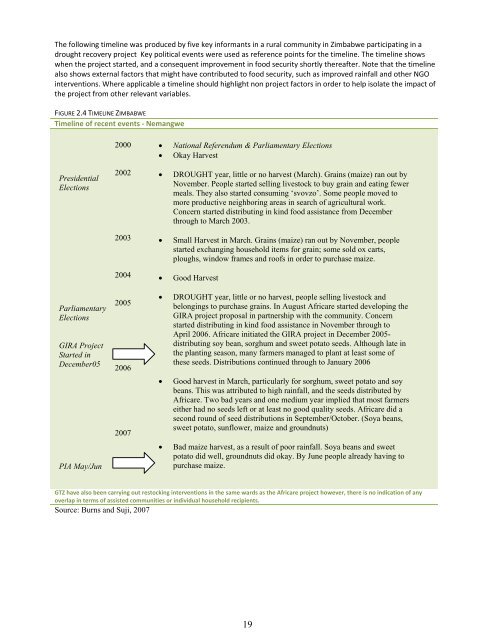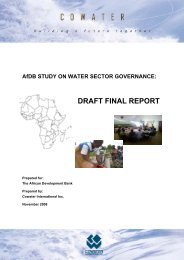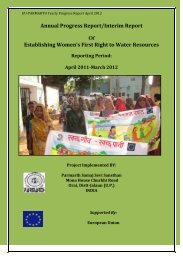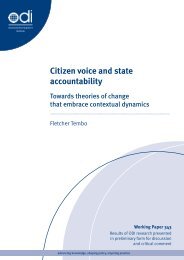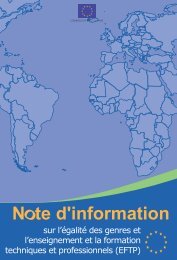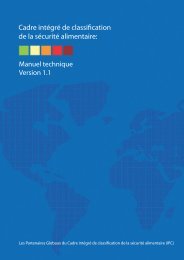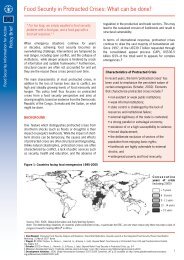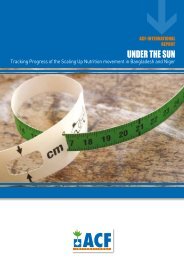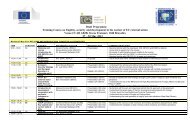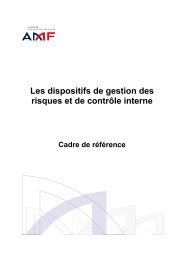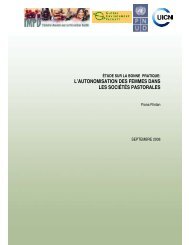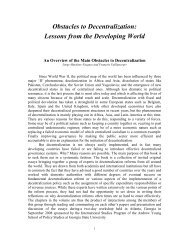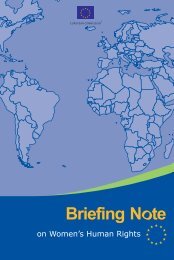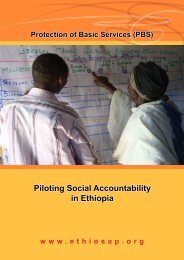Participatory Impact Assessment - Capacity4Dev
Participatory Impact Assessment - Capacity4Dev
Participatory Impact Assessment - Capacity4Dev
Create successful ePaper yourself
Turn your PDF publications into a flip-book with our unique Google optimized e-Paper software.
ThefollowingtimelinewasproducedbyfivekeyinformantsinaruralcommunityinZimbabweparticipatingina<br />
droughtrecoveryprojectKeypoliticaleventswereusedasreferencepointsforthetimeline.Thetimelineshows<br />
whentheprojectstarted,andaconsequentimprovementinfoodsecurityshortlythereafter.Notethatthetimeline<br />
alsoshowsexternalfactorsthatmighthavecontributedtofoodsecurity,suchasimprovedrainfallandotherNGO<br />
interventions.Whereapplicableatimelineshouldhighlightnonprojectfactorsinordertohelpisolatetheimpactof<br />
theprojectfromotherrelevantvariables.<br />
FIGURE2.4TIMELINEZIMBABWE<br />
TimelineofrecenteventsNemangwe<br />
<br />
2000 National Referendum & Parliamentary Elections<br />
Okay Harvest<br />
Presidential<br />
Elections<br />
2002<br />
<br />
DROUGHT year, little or no harvest (March). Grains (maize) ran out by<br />
November. People started selling livestock to buy grain and eating fewer<br />
meals. They also started consuming ‘svovzo’. Some people moved to<br />
more productive neighboring areas in search of agricultural work.<br />
Concern started distributing in kind food assistance from December<br />
through to March 2003.<br />
2003<br />
<br />
Small Harvest in March. Grains (maize) ran out by November, people<br />
started exchanging household items for grain; some sold ox carts,<br />
ploughs, window frames and roofs in order to purchase maize.<br />
2004<br />
<br />
Good Harvest<br />
Parliamentary<br />
Elections<br />
GIRA Project<br />
Started in<br />
December05<br />
2005<br />
2006<br />
<br />
DROUGHT year, little or no harvest, people selling livestock and<br />
belongings to purchase grains. In August Africare started developing the<br />
GIRA project proposal in partnership with the community. Concern<br />
started distributing in kind food assistance in November through to<br />
April 2006. Africare initiated the GIRA project in December 2005-<br />
distributing soy bean, sorghum and sweet potato seeds. Although late in<br />
the planting season, many farmers managed to plant at least some of<br />
these seeds. Distributions continued through to January 2006<br />
2007<br />
<br />
Good harvest in March, particularly for sorghum, sweet potato and soy<br />
beans. This was attributed to high rainfall, and the seeds distributed by<br />
Africare. Two bad years and one medium year implied that most farmers<br />
either had no seeds left or at least no good quality seeds. Africare did a<br />
second round of seed distributions in September/October. (Soya beans,<br />
sweet potato, sunflower, maize and groundnuts)<br />
PIA May/Jun<br />
<br />
Bad maize harvest, as a result of poor rainfall. Soya beans and sweet<br />
potato did well, groundnuts did okay. By June people already having to<br />
purchase maize.<br />
<br />
GTZhavealsobeencarryingoutrestockinginterventionsinthesamewardsastheAfricareprojecthowever,thereisnoindicationofany<br />
overlapintermsofassistedcommunitiesorindividualhouseholdrecipients.<br />
Source: Burns and Suji, 2007<br />
19


